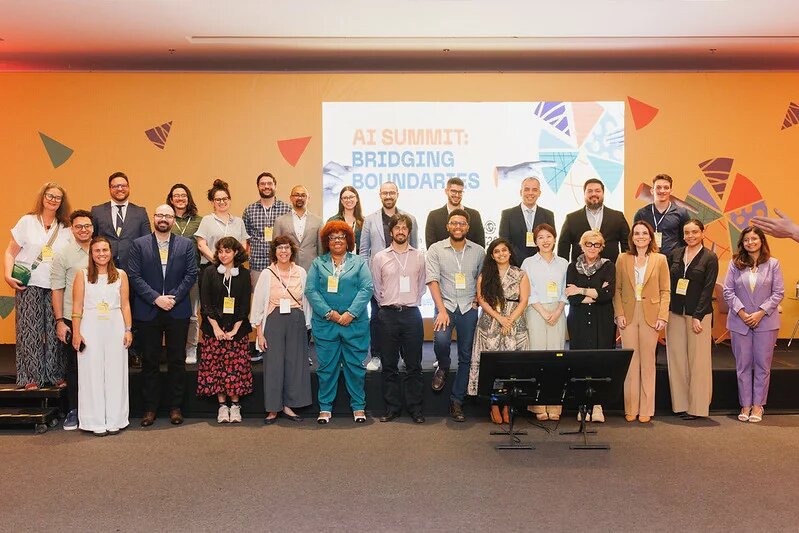The 'AI Summit: Bridging Boundaries' event took place in São Luís do Maranhão on June 10.

The capital of Maranhão was the stage for discussions between experts in the digital world. In addition to the central themes involving artificial intelligence and the notorious fake news, the regulation of social networks and data governance are gaining even more traction in the T20's 'Inclusive Digital Transformation' working group this year. The 'AI Summit: Bridging Boundaries' event was held in parallel to the G20 meeting on the Digital Economy, which took place a few days later, also in São Luís.
Watch on youtube: https://www.youtube.com/live/UoV_gw94j54
The AI Summit program was divided into four panels. The first, "Global Governance of Artificial Intelligence: from local to global", addressed the need to create international policies that can make sense for local populations, especially for people living in peripheral areas. To do this, it is necessary to listen attentively to cultural differences and understand the local realities of each country.
"According to the IBGE, there are 40 million people in Brazil today who don't have access to any digital technology. Either because they are not literate enough to understand the digital world, or because they are poor and don't have access, or elderly. I'd like to know what's going to happen to these 40 million people? How are we going to include them?" said Professor Rosângela Hilário, from the Federal University of Rondônia and a panelist at the event.
In other words, generate interest and more attention to the specificities of each community, because although internet products are created uniformly for the planet as a whole, they reach the end consumer differently and the consequences and responses to them are alarmingly different. In fact, according to the organizers, the city of São Luís was chosen in order to bring these discussions to Brazilian cities that are not always on the map of events that discuss this subject.
The second panel, "AI to Reduce Inequalities and Asymmetries", highlighted how artificial intelligence can be used to reduce social and economic disparities. For Bruno Bioni, founder of Data Privacy Brasil, we need to expand our horizons to create public policies that reach as many people as possible.
Bruno also pointed out the difficulties involved in analyzing large volumes of data. But he also stressed that only by delving deeper into these analyses is it possible to build a more inclusive artificial intelligence. "We can't discuss artificial intelligence without a constitutive debate on this technology, which is the debate on data governance. Because these technologies don't happen in a vacuum, they are necessarily fed by data," says Data's director.
"This is an event for building bridges, especially between the engagement groups of the Social G20," says Bruno Bioni in an interview with Böll Brasil.
The event brought together facilitators and participants from various G20 working groups, including T20 (Think Tanks / research institutes), C20 (Civil Society / civil society), B20 (Business / industry), L20 (Labor / work) and W20 (Women / women).
"As the topic of artificial intelligence is very cross-cutting, it is being dealt with in these different engagement groups and also in different groups of the government track, but without a coordination effort yet. The first purpose of the event was this: to have convergence on common points dealt with in these different engagement groups."
Bruno Bioni, Data Privacy Brasil
The fourth and final panel, "Transformative Impact on the Web and the Digital Ecosystem", explored how AI is revolutionizing the internet and outlined possible future scenarios for digital environments. For the experts, social networks have become a conduit for content, rather than spaces for socializing. With AI, it's possible that technology companies will invest even more in a business model in which people are the products and their data is the currency of exchange.
The event was a joint initiative of Data Privacy Brasil, CEWEB, CEBRI and the Heinrich Böll Foundation. The recording of the event can be seen here: https://www.youtube.com/live/UoV_gw94j54.